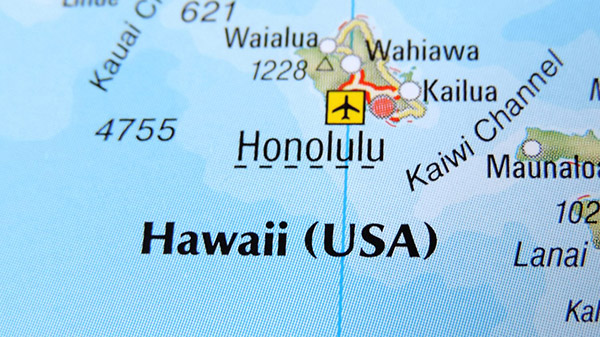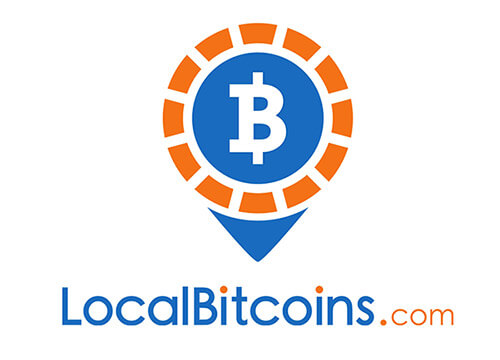 Why Did Hawaii Say Aloha to Cryptocurrencies?
Why Did Hawaii Say Aloha to Cryptocurrencies? 
Cover art/illustration via CryptoSlate. Image includes combined content which may include AI-generated content.
In March 2017, Coinbase made headlines when they announced that they will leave the state of Hawaii. The news sent shockwaves throughout the crypto community as Coinbase is arguably one of the most prominent, reputable, and trusted crypto-related companies available, which makes it all the more strange that such a huge company simply did not see a way forward in Hawaii.

Fast forward to nearly a year later. Hawaiian legislators have just recently submitted two bills to be considered for implementation under the Hawaiian Money Transmitters Act.
The bills, respectively known as HI SB2853 and HI SB3082 propose that all individuals or business who intend on participating in cryptocurrency-related transactions should apply for a license to do so.
The suggested bills suggest that the state of Hawaii intends on making it as difficult as possible for its residents to participate in the cryptocurrency industry.
At face value, that will not only be harmful to the larger cryptocurrency industry, but will also stifle financial technology innovation.
However, most pieces of legislation are made for a reason, which then begs the question: where exactly did the conflict between the state of Hawaii and cryptocurrency start? What caused Coinbase to leave Hawaii, why are Hawaiian citizens prohibited from signing up to cryptocurrency exchanges, and is there any way to get around the increasingly strict Hawaiian legislation?
Why did Coinbase leave Hawaii
Like most other governments all over the world, the state of Hawaii adopted a cautious approach when it came to cryptocurrency, especially when cryptocurrency entered the mainstream in 2017.
However, some argue that caution quickly turned into paranoia, especially when Hawaii started introducing legislation which restricted their citizens’ involvement in the industry and also subsequently led to Coinbase deciding to leave the state.

In early 2017, Hawaii’s Division of Financial Institutions (DFI) decided to enforce remarkably high solvency requirements against Coinbase.
According to Juan Suarez form Coinbase, the DFI notified the company in September 2016 that they would implement policies which would make it impossible for them to continue operations in Hawaii.
Among other policies, Coinbase and other crypto-related companies would be required to keep liquid assets or cash reserves that is equal to the total funds invested by all Hawaiian Coinbase customers at any given time.
For example, if all Hawaiian Coinbase customers own a total of 10 bitcoin, the company would be required to keep an amount in reserve that serves as this number’s equivalent in fiat currency ($67,471.25 at the time of writing).
At the time, Coinbase spoke out against this policy and stated that it was a highly impractical demand that no cryptocurrency exchange would be able to adhere to.
The new policy dictates that Coinbase should be responsible for holding both the Hawaii-based customer’s cryptocurrency as well as its fiat currency equivalent. This puts an unnecessary strain on Coinbase as this requirement is far more severe than any other collateral requirements imposed on financial institutions within the state of Hawaii.
Considering the impractical demands of this new policy it becomes understandable that Coinbase opted to leave Hawaii instead.
More regulation
Unfortunately, Hawaii’s less-than-supportive approach to cryptocurrency did not end there.
In 2017, the Senate passed an act, known as the Virtual Currency Businesses Act which urges businesses to seek counsel and advice before implementing this technology on their platforms.

The proposed modifications will require all prospective participants in the cryptocurrency industry to apply for a license before being allowed to conduct transactions related to cryptocurrency purchases.
While individuals and businesses are encouraged to apply for the proper licenses, the process is rather invasive. When applying, applicants are asked questions regarding their personal and professional lives, including highly sensitive information such as former criminal records.
If approved, the new bills would serve as new obstacles that prevent Hawaiian citizens from taking part in the cryptocurrency industry.
Bill HI SB3082 states that all cryptocurrency participants should be aware and prepared to lose their entire holdings instantly due to the industry’s volatility and other risk factors often associated with it.
While the bills are still in the process of reviewing before it can be passed into Hawaii’s legislation, the country’s curious conservative attitude when it comes to cryptocurrency regulation suggests that there is a strong likelihood that these bills will be passed.
Why Hawaiian users cannot sign up for cryptocurrency exchange services
Unsurprisingly, several major exchanges in addition to Coinbase, have also decided to close their doors to Hawaiian users.

This has most certainly kept thousands of potential investors from entering into the market.
While we could debate the harm inflicted by Hawaii’s questionable policies, the fact remains that the Hawaii people are effectively being prevented from purchasing and selling cryptocurrencies.
After leaving Hawaii, Coinbase simply declines new users who sign up using a Hawaii ZIP code, while pre-existing users have been blocked after being granted a grace period of 30 days to move their funds.
Hawaii residents have also been blocked from Bittrex, while Hawaiian users report limited usage of platforms such as Kraken.
Since most reputable online platforms have shut their doors to Hawaiian traders, most have sought alternatives which are often less reputable, more questionable, and much more dangerous.
Is there a workaround?
Social media platforms, especially platforms such as Reddit, report a mixed bag of experiences on Coinbase’s competitor exchanges. However, considering Hawaii’s demanding regulation, it seems unlikely that legitimate trading platforms would operate in Hawaii. The risk is simply too great.

At the moment, the best option for Hawaiian traders seems to be peer-to-peer based trading platforms, such as Localbitcoins.
This option might not be perfect since it is a secondary market which means that Hawaiian traders might be charged at a much higher premium than the global trading average, but it is a safer option from a reputable platform.
The legislators and regulators from the state of Hawaii claim that their policies have been put in place in an attempt to protect their citizens. However, while the policies intentions may be good, the practice does immeasurable harm to a state that has great potential in the industry.
By opting to freeze their residents out of the new promising crypto industry, they are essentially robbing them of opportunities to benefit and learn from an exciting new industry, while also stifling all innovation which could greatly enhance the state’s internal structure, government processes, and not to mention business and finance sector.





































































































